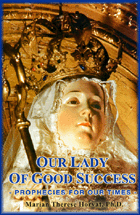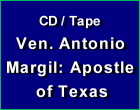Stories & Legends
 |
 |
 |
 |
 |
 |
 |
Chant Royal on Lent
Eustache Deschamps was not only a popular French lyric poet, but had an administrative career in the French courts of Charles V and Charles VI. He lived in difficult times, amid the Hundred Years’ War, the Black Death and the Great Schism of the West.
Along with multiple other works, Deschamps wrote as many as 1,175 lyric pieces - ballades, royal chansons and others. His poems are short, and often satirical, attacking the English whom he regards as the plunderers of his country. Unusual in Deschamps’ oeuvre are his poems on contemporary events. For example, he writes about revolts in France and battles against the English in great detail. He has poems against high taxes, against the rule of the people, on the proper education of rulers, nobles and knights, and one about the search for truth, in which his guide is a simple plowman.
The Chant Royal we reproduce here today is one of his ceremonial devotional poems, reflecting well the religious spirit of the Middle Ages.
Along with multiple other works, Deschamps wrote as many as 1,175 lyric pieces - ballades, royal chansons and others. His poems are short, and often satirical, attacking the English whom he regards as the plunderers of his country. Unusual in Deschamps’ oeuvre are his poems on contemporary events. For example, he writes about revolts in France and battles against the English in great detail. He has poems against high taxes, against the rule of the people, on the proper education of rulers, nobles and knights, and one about the search for truth, in which his guide is a simple plowman.
The Chant Royal we reproduce here today is one of his ceremonial devotional poems, reflecting well the religious spirit of the Middle Ages.

Are presented by the Church Militant
For the soul to enjoy recreation
And the body to become penitent,
Confessing sins and errors, repentant.
In these holy days' ample space,
God wills to redeem our iniquitous race,
Offering His own Body pitiful.
In Holy Week He does Himself abase,
For in this season God is merciful.
Eve and Adam brought about damnation:
With the fruit, they earned mankind's punishment,
And Hell became our due destination,
For they scorned God and believed the serpent.
But True Love took our nature by consent
Of a humble fair Maiden chaste;
He sent Gabriel to announce and trace
The manner of His advent bountiful
To Mary, Blessed Virgin full of grace, (1)
For in this season God is merciful.
By Eve, deceived, came our sad perdition;
By Mary, salvation's New Testament;
By the serpent, rebellious sedition;
By Gabriel, belief obedient.
For our evil deeds God died in torment;
Death's cruelty did He outface,
By dying brought health to our sickly case,
Drew us from Hell with pardon plentiful,
And led us to sovereign glory's embrace,
For in this season God is merciful.
The sweet Jesus has won our redemption,
And saves us by a certain covenant:
Baptismal waters' purification,
Then to be in our true Faith diligent,
And to love Him for His loving descent
As celestial Fountain of grace,
Bringing Heaven's dew to our native place.
His streams render our dead souls flowerful;
Let us His servants kneel before His Face,
For in this season God is merciful.
He calls us now to make satisfaction,
And depart from ways of which we repent.
In Lent He grants us priceless remission
From the Cross, His arms outspread, forces spent.
His Passion all sinners ought to lament,
But see how, from His Heart's wound,
Race Blood and water with power to efface
Our guilt! He is Life to the dutiful;
With penance let us follow Him apace,
For in this season God is merciful.
Princes, practice corporal purgation,
And offer some spiritual oblation;
In Lent this is my counsel and judgment.
Each of us should fast with pure intent,
And amend his deeds with firm dedication. (2)
- This verse refers to the Annunciation to the Blessed Virgin Mary and the Incarnation of Jesus that took place on March 25, which is almost always in Lent. According to medieval calculation, the Creation of Adam and Eve and the Original Sin occurred on the same date.
- The end of this poem is a strikingly successful example of using words unspoken but heard (the technique is by no means modern). The refrain “For in this season God is merciful” is expected, but does not enter. Nevertheless, the sense of the final line naturally leads into it. The reader is almost forced to supply the refrain; he thinks of it all the more because of its absence, and thus further internalizes its words and thought. He can then reflect that the poet has done what he calls on all men to do; by changing his ways, he can hope for God's mercy.

(Translated from the French text “Quarante jours de consolacion”
in Oeuvres Completes III (1884) pp. 79–81,
Chant royal of ten-line stanzas ababbccdcD with envoi aabba;
For the original French, click here)
Posted on March 29, 2014
in Oeuvres Completes III (1884) pp. 79–81,
Chant royal of ten-line stanzas ababbccdcD with envoi aabba;
For the original French, click here)
Posted on March 29, 2014
Because rhyme and other features vary from language to language, these English poems cannot stand as accurate translation. Still, the verse form itself is part of the original poet’s spirit, culture, thought and artistry that Dr. Coats hopes to make more readily available to readers whose principal language is English.






